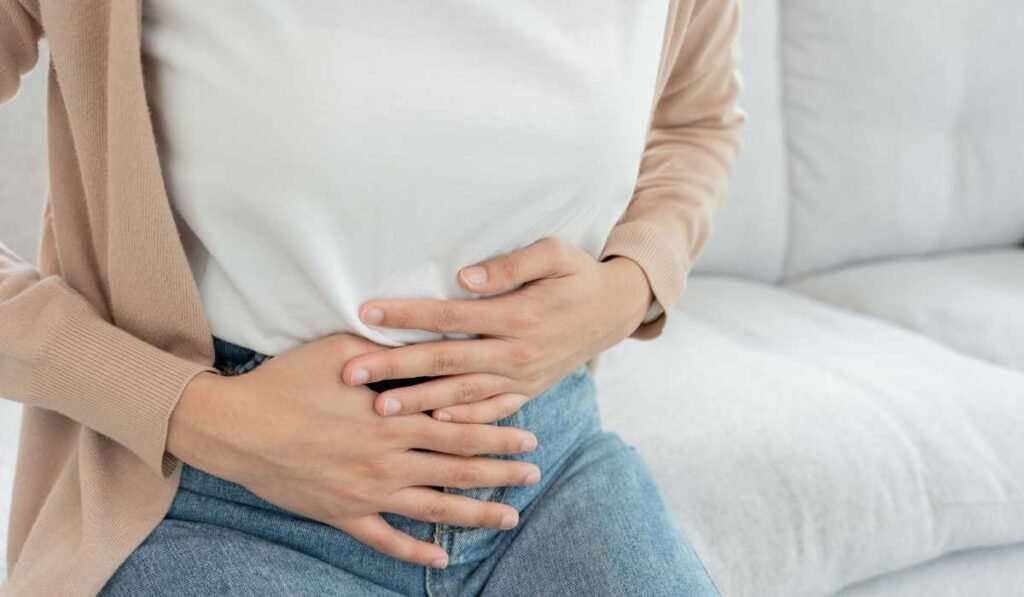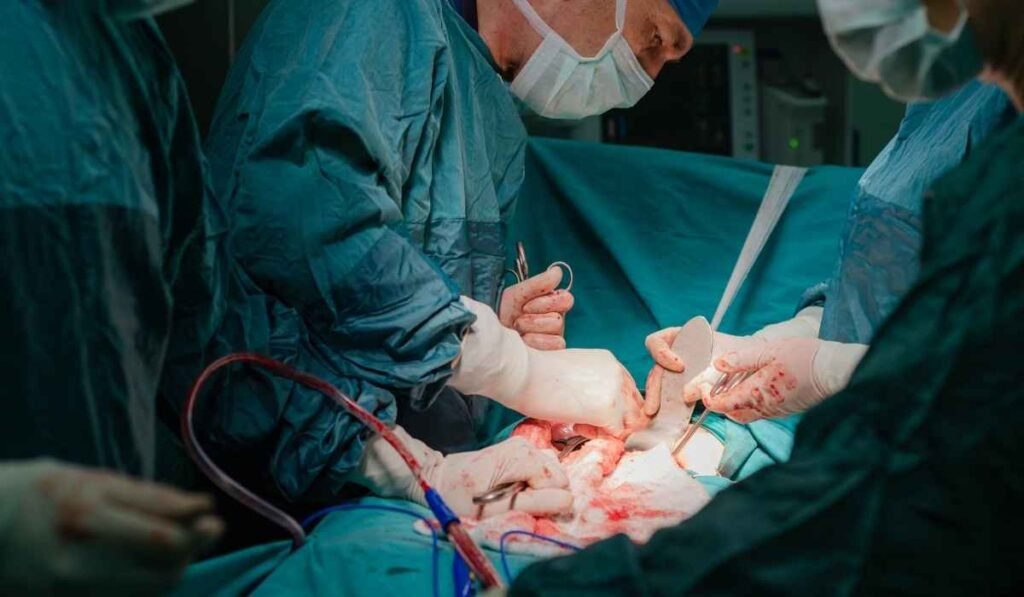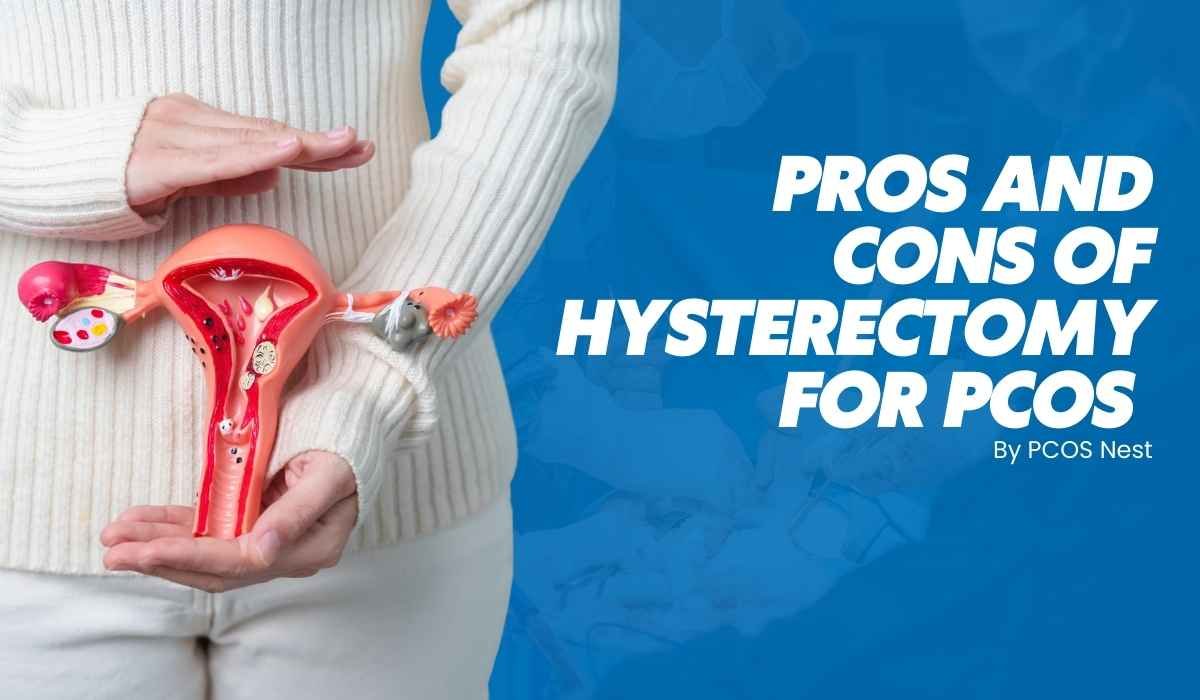Hysterectomy and PCOS:
PCOS is a hormonal condition that affects the ovaries and causes symptoms like irregular periods, excess androgen levels, and ovarian cysts. While a hysterectomy removes the uterus, it doesn’t directly address the hormonal imbalances or cysts on the ovaries caused by PCOS.
If you are planning for a hysterectomy, you should know the pros and cons of hysterectomy for PCOS. Sometimes, a hysterectomy may be recommended for women with PCOS, but only in specific situations where other treatments haven’t worked, or serious complications arise. These complications include:
1. Endometrial Hyperplasia:
This means the lining of the uterus becomes too thick. In PCOS, irregular or skipped periods can cause this because the uterine lining isn’t shed regularly.
Over time, this thickening can increase the risk of uterine cancer.
If medications or hormonal treatments don’t help, a hysterectomy is considered to prevent further issues.
2. Severe Abnormal Bleeding:
Some women with PCOS experience heavy or continuous bleeding that doesn’t stop with regular treatments like medications or hormonal therapy.
This heavy bleeding can lead to anemia (low iron in the blood) and extreme fatigue.
In these cases, removing the uterus might be a solution to stop the bleeding permanently.
3. Chronic Pelvic Pain:
Chronic pain in the lower abdomen or pelvic area can sometimes be caused by conditions that are common alongside PCOS, like endometriosis (tissue similar to the uterus lining growing outside it) or fibroids (non-cancerous growths in the uterus).
If this pain doesn’t improve with other treatments, a hysterectomy might help relieve it.

Also Read: Symptoms of PCOS after Partial Hysterectomy
Does a Hysterectomy Cure PCOS?
No, a hysterectomy doesn’t cure PCOS because this is due to hormonal imbalances involving the ovaries and sometimes the adrenal glands. Hysterectomy does not treat hormonal imbalance. Due to this, removing the uterus won’t eliminate symptoms like insulin resistance, acne, or hirsutism.
Suppose the ovaries are also removed during the surgery (this is called an oophorectomy). In that case, it may help reduce some PCOS-related issues, like high androgen levels (male hormones), which cause acne and hirsutism. However, removing the ovaries has its downsides also:
It causes surgical menopause, which means the body suddenly stops producing key hormones like estrogen.
This can lead to symptoms like:
- Hot Flashes (sudden feelings of heat)
- Night Sweats
- Mood Swings
- Bone Loss (higher risk of osteoporosis)
Pros and Cons of Hysterectomy for PCOS:
While hysterectomy is not a standard treatment for PCOS, some women may consider it due to complications or coexisting conditions. Below are the pros and cons of hysterectomy if you have PCOS.
Pros:
If you have issues like heavy bleeding, severe pain, or endometrial hyperplasia (thick uterine lining), removing the uterus can stop these problems permanently.
Women with PCOS are at higher risk of uterine cancer due to irregular periods. Removing the uterus eliminates this risk.
If PCOS causes other serious issues like chronic pelvic pain (due to fibroids or endometriosis), a hysterectomy can provide long-term relief.
Cons:
PCOS is caused by hormonal imbalances related to the ovaries, not the uterus. So, the surgery won’t fix issues like weight gain, acne, hair growth, or insulin resistance.
After a hysterectomy, you can’t get pregnant. This is a big decision for women who might want children in the future.
If the ovaries are also taken out (oophorectomy), it can cause sudden menopause. This can lead to hot flashes, mood swings, weaker bones, and heart health risks.
The uterus plays an important role in supporting other organs in the pelvis, like the bladder, rectum, and pelvic bones & organs. When the uterus is removed during a hysterectomy, this natural support is lost, which can sometimes lead to pelvic issues.
Like any major surgery, a hysterectomy comes with risks, such as infection, heavy bleeding, or complications from anesthesia.

FAQs:
Does PCOS get better after hysterectomy?
No, a hysterectomy does not cure PCOS. PCOS is due to hormonal imbalances and hysterectomy does not treat the hormonal imbalance at all. Hysterectomy addresses certain uterine-related & heavy bleeding issues and prevents uterine cancer, it does not cure PCOS or its symptoms.
What is the treatment for PCOS after a hysterectomy?
PCOS after a hysterectomy involves lifestyle changes and holistic approaches to treat hormonal imbalances. Firstly focus on a balanced and healthy diet. Eat unprocessed foods rich in magnesium, such as leafy greens, nuts, seeds, and whole grains. Avoid sugary and junk food. Engage in consistent physical activity, including both aerobic exercises like walking and strength training, to improve insulin sensitivity and support weight management.
What is the best age to get pregnant with PCOS?
Fertility generally declines with age, and this decline can be more pronounced in women with PCOS. Doctors often recommend that women with PCOS consider trying to conceive in their late twenties to early thirties, as fertility tends to be more optimal during this period. Conceiving before age 35 is generally associated with higher fertility rates.
What is the negative side of having a hysterectomy?
A hysterectomy can cause severe negative effects, including surgical risks such as infection, excessive bleeding, and injury to surrounding organs. If the ovaries are removed, it may induce early menopause that results in symptoms like hot flashes and an increased risk of osteoporosis. Additionally, some studies suggest an increased risk of cardiovascular issues after hysterectomy.
How is life after hysterectomy without ovaries?
A hysterectomy with oophorectomy (removal of the uterus and ovaries) causes immediate menopause that results in flashes, mood swings, weaker bones, and heart health risks, as your body’s primary sources of estrogen and progesterone are eliminated. And you can get pregnant after hysterectomy.

